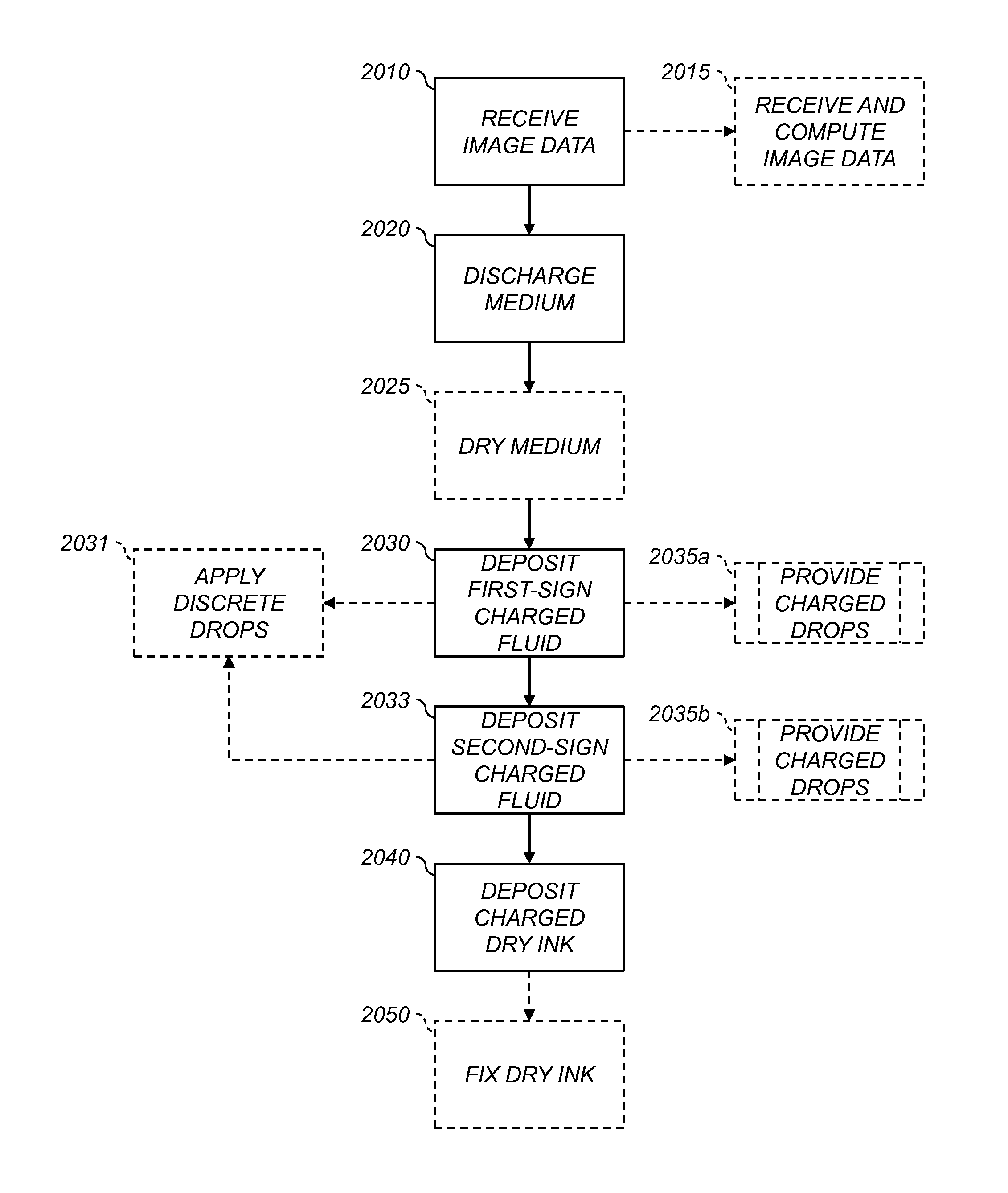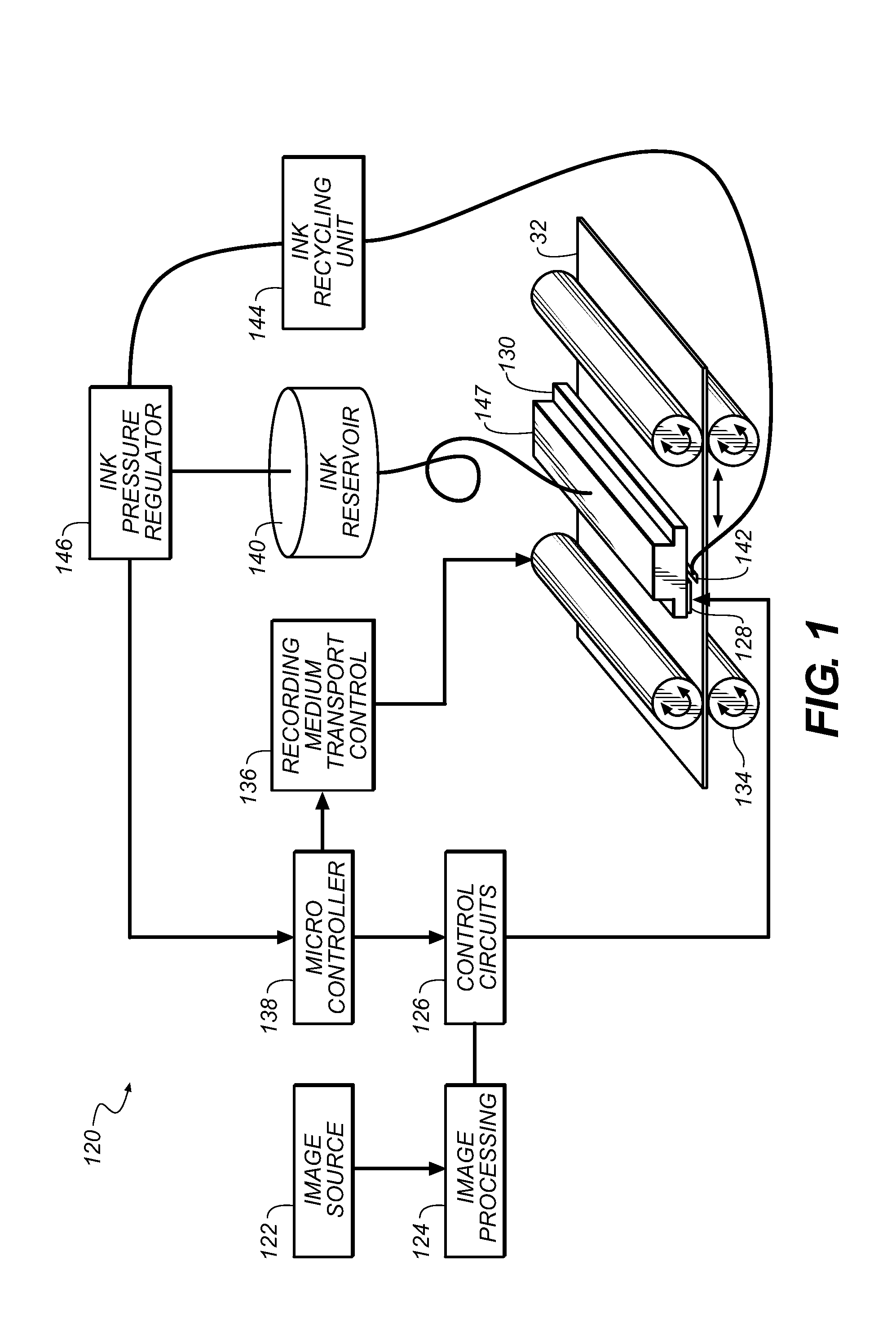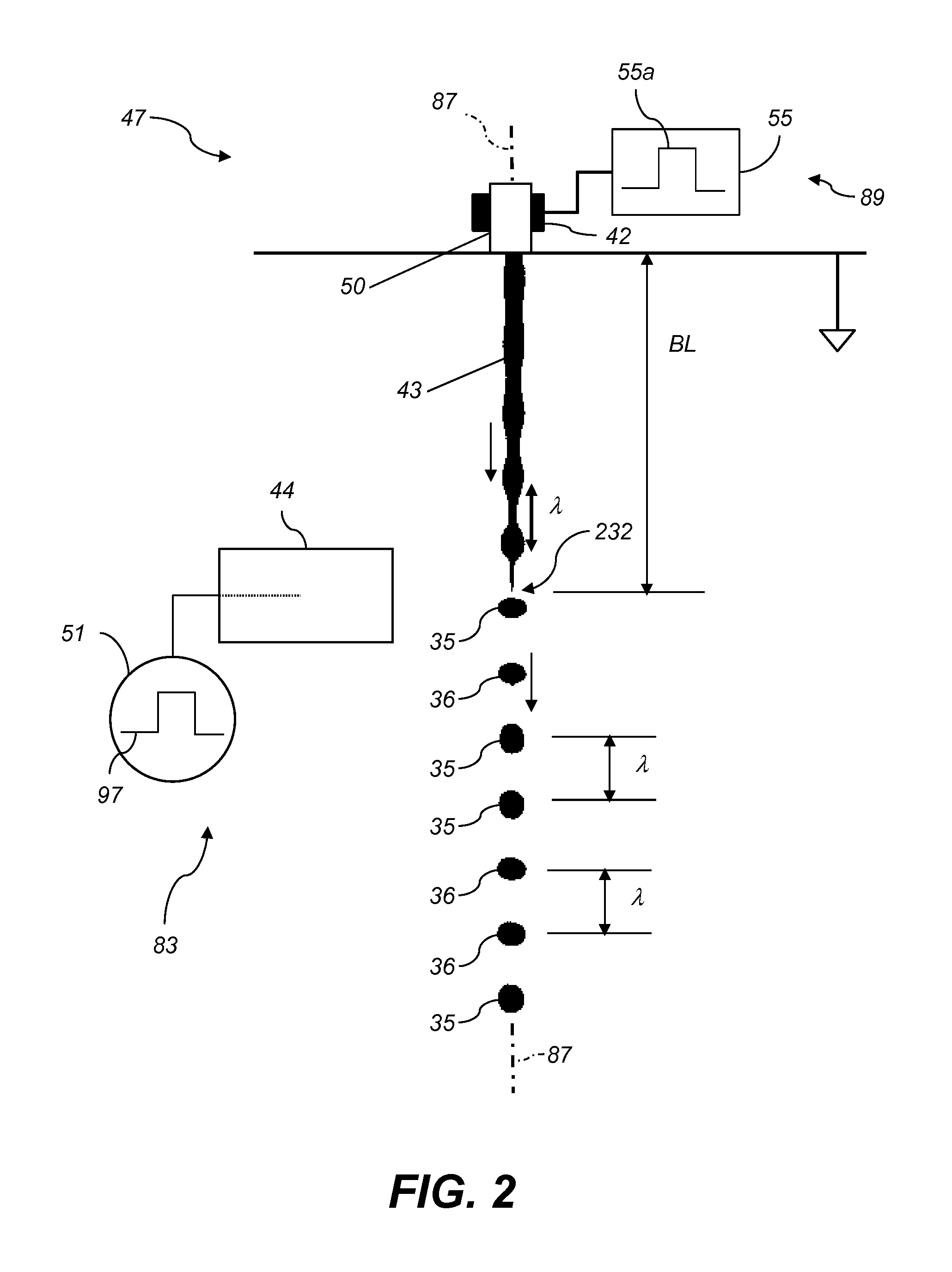Large-particle inkjet dual-sign development printing
a technology of inkjet printing and large particles, applied in the direction of electrographic process apparatus, typewriters, instruments, etc., can solve the problems of low image density of printed images, limited use of purpose-made coated inkjet papers to improve image density, and inkjet inks that suffer from low image density, etc., to achieve low viscosity, high pigment concentration, and high viscosity. high
- Summary
- Abstract
- Description
- Claims
- Application Information
AI Technical Summary
Benefits of technology
Problems solved by technology
Method used
Image
Examples
Embodiment Construction
[0041]Reference is made to commonly assigned, co-pending U.S. patent application Ser. Nos. 13 / 245,947, filed Sep. 27, 2011, entitled “INKJET PRINTER USING LARGE PARTICLES,” by Thomas N. Tombs, et al.; 13 / 245,971, filed Sep. 27, 2011, entitled “ELECTROGRAPHIC PRINTING USING FLUIDIC CHARGE DISSIPATION,” by Thomas N. Tombs, et al.; 13 / 245,957, filed Sep. 27, 2011, entitled “LARGE-PARTICLE INKJET PRINTING ON SEMIPOROUS PAPER,” by Thomas N. Tombs, et al.; 13 / 245,977, filed Sep. 27, 2011, filed, entitled “ELECTROGRAPHIC PRINTER USING FLUIDIC CHARGE DISSIPATION,” by Thomas N. Tombs, et al.; 13 / 245,964, filed Sep. 27, 2011, entitled “LARGE-PARTICLE SEMIPOROUS-PAPER INKJET PRINTER,” by Thomas N. Tombs, et al.; U.S. patent application Ser. No. 13 / 077,496, filed Mar. 31, 2011, entitled “DUAL TONER PRINTING WITH DISCHARGE AREA DEVELOPMENT,” by William Y. Fowlkes, et al.; and 13 / 245,931, filed Sep. 27, 2011, entitled “INKJET PRINTING USING LARGE PARTICLES,” by Thomas N. Tombs, et al.; the disclo...
PUM
 Login to View More
Login to View More Abstract
Description
Claims
Application Information
 Login to View More
Login to View More - R&D
- Intellectual Property
- Life Sciences
- Materials
- Tech Scout
- Unparalleled Data Quality
- Higher Quality Content
- 60% Fewer Hallucinations
Browse by: Latest US Patents, China's latest patents, Technical Efficacy Thesaurus, Application Domain, Technology Topic, Popular Technical Reports.
© 2025 PatSnap. All rights reserved.Legal|Privacy policy|Modern Slavery Act Transparency Statement|Sitemap|About US| Contact US: help@patsnap.com



